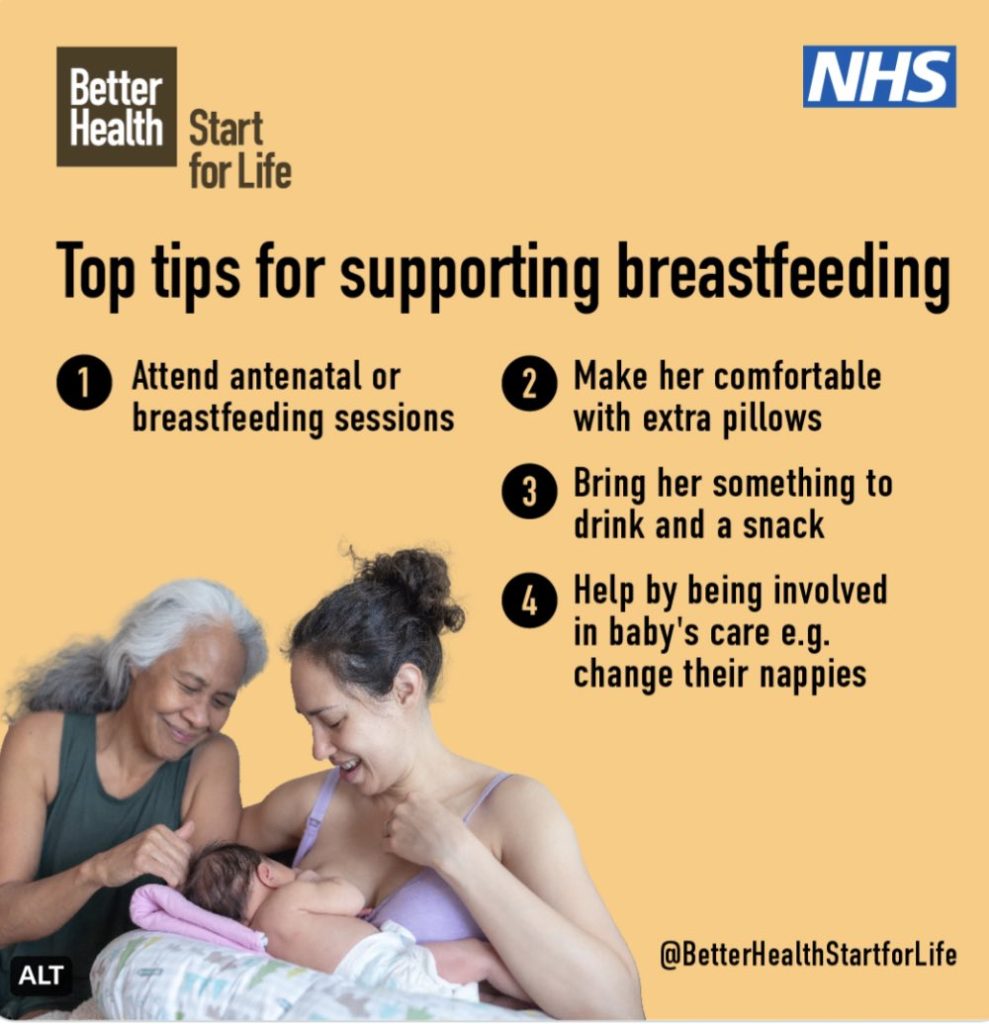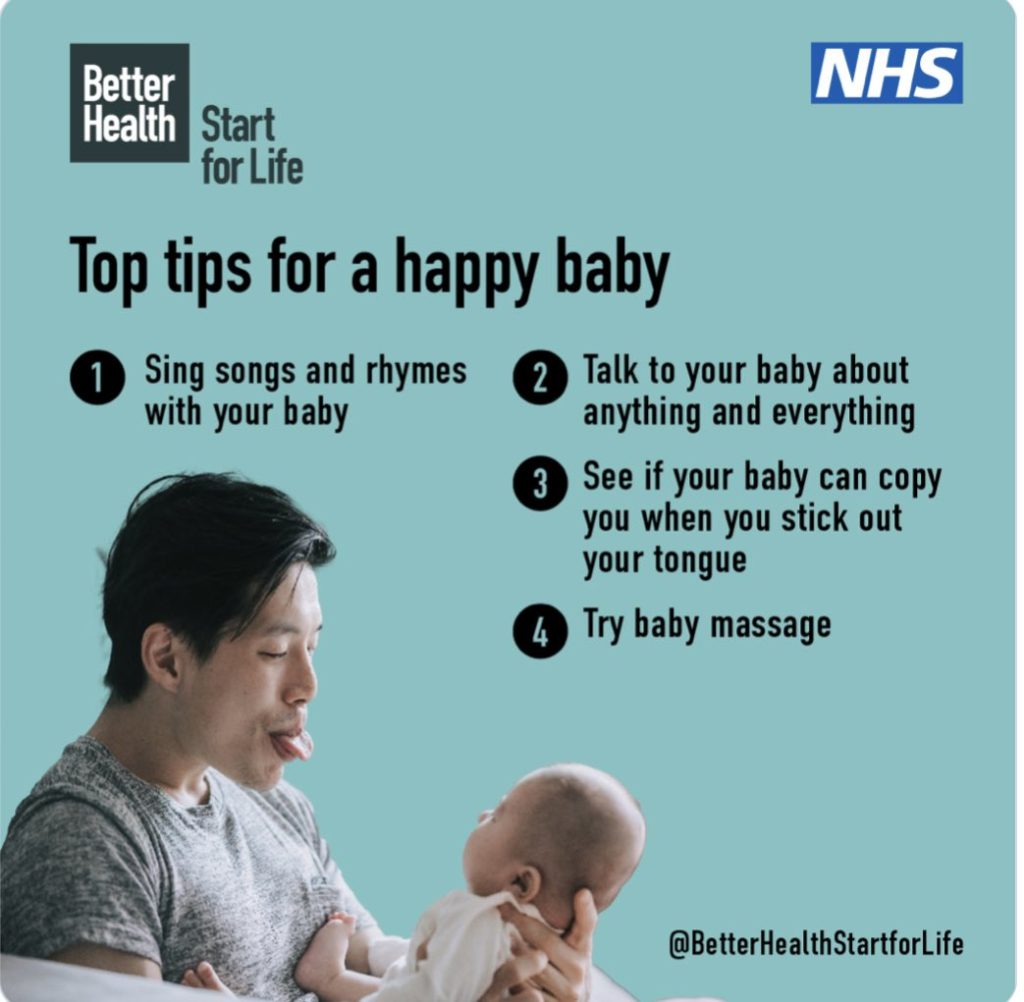There has been understandable outrage about MP George Eustice’s comments that women are ‘biologically hardwired’ to stay at home and nurture babies and children. But sexist ideas like this aren’t just the purview of the odd Tory MP who is stuck in the past. They are embedded in NHS infant feeding policy and postnatal care!
The Guardian quotes Eustice as saying:
‘Many women do want to spend those first few years with their child…It’s a short period in life where they can perform that natural nurturing role…I think [motherhood and fatherhood] are different… Fathers of course have a very strong paternal desire to spend time with their children but you can’t get away from the way we are biologically wired and the maternal instinct is a strong one.’
The chief executive of the Fatherhood Institute tells the Guardian that Eustice’s comments are ‘out of touch’ and ‘insulting’. But are his comments any different from the narrative presented to parents during pregnancy and in the postnatal period by our healthcare authorities?
Let’s take the claim about biology. A quick Google search brings up these statements from the information resources given to new parents by NHS trusts. Royal Wolverhampton NHS Trust tells us, ‘Breastfeeding is the normal and natural way to feed a baby, and is the way that humans have evolved over millions of years to feed their babies’. This resource goes on to explain, ‘It’s important to remember that humans are mammals, just like cats or dogs for example, so breastfeeding one or multiple babies is the “biological norm” for humans.’
A resource from St George’s in London also adopts this idea, saying ‘As breastfeeding is the biological norm, this leaflet presents an overview of breastfeeding alongside alternative options for feeding your baby.’ Information for families in the Isle of Wight claims that ‘Breastfeeding is the normal way to feed a baby and your baby’s good health and development depend on breastmilk.’
What about Eustice’s idea that because of their biology, women form a unique bond with babies that fathers and other primary caregivers cannot replicate? Well, as any new parent can attest, authorities never stop telling us that breastfeeding is better for bonding, no matter how false and cruel such statements are.
The leaflet called ‘Off to the Best Start’ that is given to many new parents informs mothers, ‘Breastfeeding also helps you and your baby to get closer – physically and emotionally. So while you are feeding your baby, the bond between you grows stronger.’
Pages on the NHS website claim, ‘You bond with your baby – breastfeeding is a lovely way to feel close and strengthen the bond between you and your baby.’ And NHS Trusts use similar language, for example, ‘The closeness and responsiveness of mums and babies when breastfeeding forms the basis for strong parent relationships. This helps support their emotional and mental wellbeing throughout life’.
But, hold on. Don’t many parents choose to share the burden of feeds and caring for a new baby? Don’t many find this best for them, their relationship and a functioning family life? Yes; most families in the UK use formula at some point in their baby’s first year and sharing feeds is clearly a major benefit to bottle feeding.
So, parents supporting each other with the challenges of having a new baby is roundly seen as a good thing? Sadly, not. In fact, this couldn’t be further from the way our healthcare authorities currently approach infant feeding. The National Institute for Health and Care Excellent (NICE), for example, sees dads sharing bottle feeds as ‘hindering’ breastfeeding. This passage comes from an evidence review they carried out in order to develop postnatal care guidelines. This review was concerned with ‘barriers to breastfeeding’:
‘The committee noted that the involvement of partner and family members could facilitate but also hinder breastfeeding. The evidence showed that bottle feeding was seen as a way to share feeding responsibilities with others, and in some cases this could lead to the use of formula. Moreover, the evidence showed that bottle feeding was perceived as allowing partners and family members the opportunity to bond with the baby…the committee noted that there were alternative ways for the partner and family members to comfort and bond with the baby…and they could support the mother in other important ways…The committee therefore felt that on balance the benefits of encouraging bonding in a range of ways outweighed the potential harms of having partners believe that bottle feeding is their only means of bonding.’
In fact, authorities are so worried about dads and family members ‘hindering breastfeeding’ that they spent last National Breastfeeding Week putting out weird guidance about ways to support mothers and bond with babies that don’t involve bottles:


We wrote a blog at the time about the sudden appearance of endless guidance about singing to babies, making tea and plumping pillows. (We also made a very, very serious video response to the National Breastfeeding Week materials, which can be seen here.)
The basis for current infant feeding policy and practice is the UNICEF so-called ‘Baby Friendly Initiative’. Resources and guidelines from the Baby Friendly Initiative are a particularly rich source of sexist ideas. Take, for example, these claims about new mothers’ brains from guidelines to professionals on, basically, how to persuade women to breastfeed: ‘Evidence suggests that pregnant women and new mothers have greater right brain dominance (intuitive, subjective) than left brain (analytical, objective), which increases their sensitivity to non-verbal communication approaches. They may also be less receptive to large volumes of verbal information.’
Ideas about biology and bonding that we have seen in NHS materials largely follow Baby Friendly Initiative publications, for example: ‘Young babies need to be close to their mother as this is the biological norm. Encouraging mothers to keep their baby close to them and continuing support for skin-to-skin contact throughout the postnatal period and beyond will help with this.’
So, if you think ideas about the ‘biological norm’ and women as the essential primary caregiver are the domain of out of touch Conservative MPs, we urge you to read current infant feeding policy! Just look at NHS infant feeding web pages or information resources for new parents from different NHS Trusts. Look at anything at all from the so-called Baby Friendly Initiative!
And just to be clear, these sexist infant feeding policies aren’t a Tory thing. Successive governments since the early 1990s have overseen the policy of exclusive breastfeeding promotion and supported the expansion of the Baby Friendly Initiative into our hospitals. This is all in spite of no evidence that the promotion of exclusive breastfeeding and the Baby Friendly Initiative are safe or effective, or indeed whether parents find them acceptable.
We think it’s time for some outrage about that!
Sue Haddon

